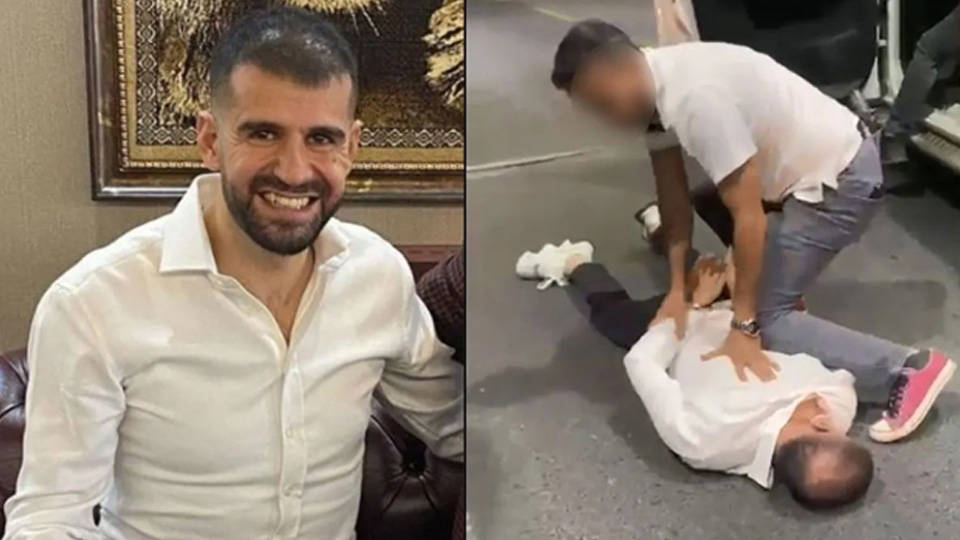The Ankara 32nd High Criminal Court has sentenced mob boss Ayhan Bora Kaplan, whose network allegedly had ties to former Interior Minister Süleyman Soylu, to 68 years in prison in a case that has implicated high-ranking political figures and exposed corruption in Turkey’s law enforcement and judiciary, Turkish media reported.
Kaplan, described by authorities as the leader of an armed criminal organization, was found guilty on multiple charges, including “intentional injury,” “deprivation of liberty,” “instigating aggravated assault” and other violent crimes. His trial, held at the Sincan Prison complex, concluded with a dramatic courtroom outburst in which Kaplan accused the judiciary of bias and claimed his trial was politically motivated.
“What [even] Israel does not do to Palestine, you are doing to us,” Kaplan told the court. He criticized the expedited trial process, asserting, “Even theft cases [usually] take years to conclude, yet here we are with 61 defendants and 10 incidents wrapped up in just seven months.”
Kaplan was removed from the courtroom after continuing to challenge the court’s authority and accusing officials of suppressing evidence favorable to his defense.
The court also issued verdicts for several other defendants linked to Kaplan’s network, including Muhammet Kaplan, sentenced to 21 years; Fethi Koyuncu, over 13 years; Barış Kurt, more than 10 years and Mutlu Ayaş, Yusuf İzzet Savaş and Kanber Keskin, who received terms ranging from three to over four years. While 13 of the 17 defendants, who had been held in detention, were released, Kaplan and his close associates, including Adnan Kaplan, Muhammet Kaplan, and Fethi Koyuncu, remain in prison.
Connections to political figures
Kaplan’s name gained national attention following his September 2023 arrest at Ankara’s Esenboğa Airport while attempting to flee Turkey. Authorities seized cash, firearms and gold during the operation, which they linked to Kaplan’s alleged efforts to finance his criminal network. The case has drawn particular scrutiny for Kaplan’s alleged ties to former Interior Minister Süleyman Soylu and other high-profile figures.
Kaplan’s connections reportedly date back to the aftermath of a failed coup attempt in 2016, during which Kaplan was photographed at the state broadcaster TRT building armed with rifles, purportedly to defend the building from the putschists. Reports allege that Kaplan had longstanding relationships with Soylu and other officials, allowing him to operate with impunity in Ankara’s criminal underworld. Soylu, who now serves as a Justice and Development Party (AKP) lawmaker, has denied any association with Kaplan.
Kaplan’s allegations of corruption
Throughout the investigation and trial, Kaplan accused law enforcement and judicial officials of corruption. He claimed that Alp Arslan, a former head of the Ankara Police Organized Crime Department, demanded a $250,000 bribe in 2018, which Kaplan refused to pay. He also alleged that his rise to power was facilitated by Ankara’s police force and judiciary, implicating figures such as Yüksel Kocaman, a former Ankara chief public prosecutor and current member of the Supreme Court of Appeals.
Kaplan’s allegations were supported by testimony from secret witnesses who testified in return for a reduced sentence. One of the witnesses claimed that Kocaman received luxury gifts, including a villa and car, in exchange for protecting Kaplan’s criminal activities. Kocaman has denied these claims, asserting that his wealth comes from family assets.
The Kaplan case has amplified tensions between Turkey’s ruling AKP and its far-right ally, the Nationalist Movement Party (MHP). While President Recep Tayyip Erdoğan has largely remained silent, Soylu dismissed the investigation as a politically motivated attack. MHP leader Devlet Bahçeli defended Soylu, calling the allegations against him a “plot.”
The investigation has also led to a shake-up within Turkey’s law enforcement. Nine senior police officers, including Ankara Deputy Police Chief Murat Çelik, were suspended for allegedly covering up Kaplan’s activities. Further arrests followed, including several officers accused of tampering with witnesses and disclosing classified information.
Financial crimes and state lender loans
Kaplan’s financial dealings have come under intense scrutiny. Turkey’s Financial Crimes Investigation Board (MASAK) revealed that Kaplan’s businesses received 550 million Turkish lira in loans from state-owned Halkbank between 2021 and 2022. The loans were allegedly part of a broader money-laundering scheme tied to Kaplan’s criminal activities. Halkbank has denied any wrongdoing but sought legal action to censor media reports on the matter.
Investigative journalist Timur Soykan, who uncovered the financial ties, faced legal challenges after an İstanbul court banned access to his report, citing violations of “personal rights.” Critics have argued that such bans aim to suppress public scrutiny of corruption involving powerful political figures and institutions.
Witness intimidation
Serdar Sertçelik, a secret witness in the case as a former associate of Kaplan who fled Turkey and was later detained in Hungary under an INTERPOL Red Notice, alleged that he was coerced by Turkish police into implicating high-ranking political figures, including former Justice Ministers Bekir Bozdağ and Abdülhamit Gül, in Kaplan’s activities. Sertçelik has since retracted some of his statements, claiming his life is in danger due to the sensitive information he holds.
The Kaplan trial has cast a spotlight on systemic issues within Turkey’s judiciary and law enforcement. Allegations of bribery, censorship and political interference have fueled public debate about the independence of the judiciary. Critics point to the appointment of figures like Kocaman to high-ranking judicial positions as emblematic of the corruption of the judiciary under Erdoğan’s administration.
Kaplan’s sentencing is seen by some as a move to weaken Soylu’s influence rather than a genuine effort to dismantle organized crime networks. Analysts speculate that the government’s selective targeting of figures like Kaplan reflects broader power struggles within Turkey’s political landscape.



